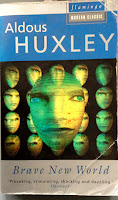This was originally posted as a "viewpoint" at Aeon Conversations Cicero looked upon philosophy as a way to prepare for death as it worked in two ways. Firstly, reason and contemplation distracted us from quotidian cares and drew our souls from our bodies in a semblance of death. Secondly, the purpose of gaining wisdom is to teach ourselves to not be afraid to die. Death and taxes, Benjamin Franklin noted, are the only two inevitable things in House of Excise Collector (built in 1841), Prague (Photo: Wikimedia/Public Domain) our lives. We can hope to influence taxes by changing our politicians every now and then or, in the case of despotism, get rid of our rulers by more violent means. But we have no choice but to accept death. Cicero looked upon philosophy as a way to prepare for death as it worked in two ways. Firstly, reason and contemplation distracted us from quotidian cares and drew our souls from our bodies in a semblance of death. Secondly, the purpose of...




